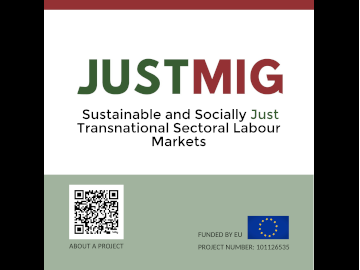Policy Briefs about temporary migrant employment in 9 countries
11. 8. 2025 | Politics

In recent years, a pattern of permanent reliance on temporary employment of migrant workers has grown significantly across the EU – especially in some sectors such as construction, care, transportation, and manufacturing. In most EU Member States, industrial relations actors struggle with problems of declining regulatory influence and deteriorating organisational capacities. Additionally, social partners and institutions find it extremely challenging to regulate sectoral labour markets where precarity and “transnationalised” vulnerability have been growing. The JUSTMIG project combines innovative research and data collection on labour market dynamics in both service and manufacturing sub-sectors across 6 EU Member States where fixed-term contracting of migrant workers occurs, and 3 EU candidate countries that are source countries for workers.
The 9 policy briefs provide concise overviews of the varied national contexts, as well as critical assessment of the adjustment of industrial relations structures in the selected countries in response to increasing employment of migrant workers on fixed-term or outsourced temporary contracts. Involving social partners and labour market institutions throughout the project with the application of an innovative participatory methodology, utilising in-depth interviews and other applied research methods of secondary analyses on new labour market realities within sectoral case studies, the briefs offer policy recommendations and raise awareness on the need for policy change.
The situation of temporary migrant workers in Austria, Bosnia and Herzegovina, Estonia, Finland, the Netherlands, Serbia, Slovakia, Slovenia, and Ukraine is presented by researchers of the Centre for Development Evaluation and Social Science Research (CREDI), De Burcht Foundation, European Centre for Social Welfare Policy and Research, Jyvaskyla University, Peace Institute, University of Belgrade, and University of Tartu.
